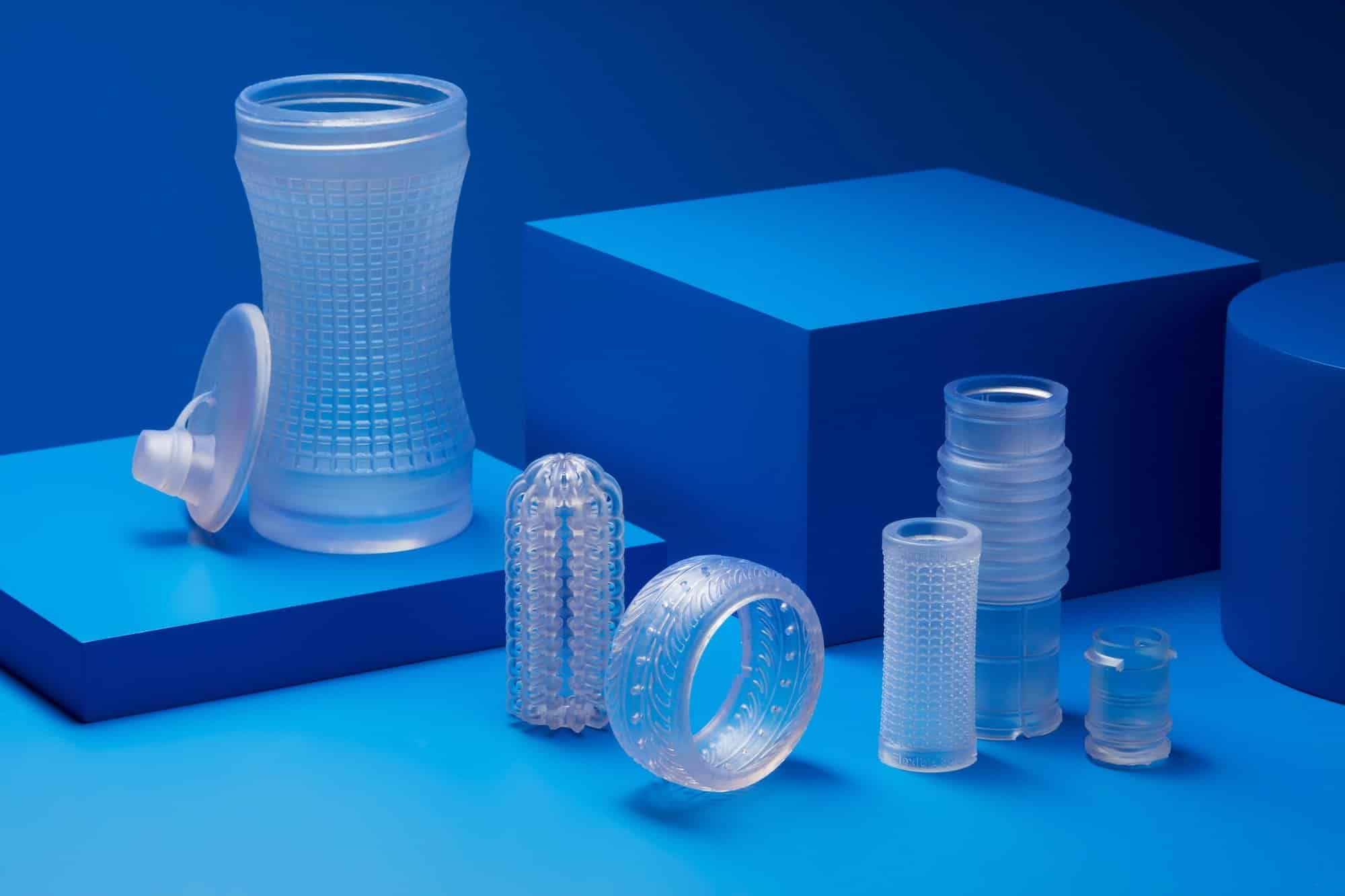
Minimum lead time
Price range

Tolerances
Layer Height
Wall Thickness

Max. Part Size
Flexible resin is excellent for simulating soft-touch materials and adding ergonomic features to multi-material assemblies. This material is known for its good flexibility, thus, it is a great choice for making multi-material assemblies because ergonomic features can easily be added. Also, it is good for producing simulating soft-materials and prototypes.
Flexible 80A Resin is very viscous compared to other resin, therefore, the resin tank takes longer to fill with this than other resins. Due of its flexibility, the material flexes during the peel process, hence, the difficulty in printing tall and thin parts or features.
This material is perfect to be used in the production of wearables and consumer goods. Due to its known flexibility, it makes a good material for tactlie and soft-touch prototypes, and for seals and gaskets. It can also be used for medical devices, anatomical models, props, and for modelmaking.
All trees produce sap to a considerable degree but only trees that belong to Pinaceae family like pines, cedars, and firs can produce natural resin. One exceptional natural tree resin is amber. It is considered as a gemstone since Neolithic times, and has since been appreciated for its natural beauty..
© 2024 Jiga, Inc. All Rights Reserved.